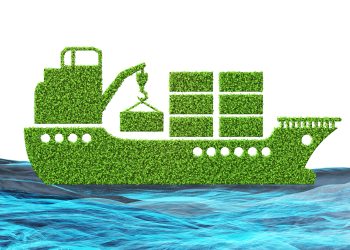The Standard Club focused on the matter of ‘anthropogenic sound’, meaning the noise pollution that prevents ocean wildlife organisms from communicating with one another, perceiving prey or finding potential mates. Therefore, the anthropogenic sound many times works as a barrier to the acoustic possibility of the deep ocean creating wildlife that has evolved to use and rely on sound as a medium to exist.
Specifically, the maritime industry is the primary factor of anthropogenic sound, but for now the laws do little to mitigate this.
The main sources of underwater noise are the shipping traffic, seismic vessels, military sonar and the explosives.
The Standard Club poses the question whether anything more stringent will be introduced and, if so, what effect this may have on cover and costs to members/other parties in the industry.
- The impact of shipping industry
There are many factors contributing to the anthropogenic sound.
The most important one is the effects of the vessel movement and vessel frequency (10 Hz – 1 kHz) on marine fauna.
90% of global trade is seaborne and the movement of people and their goods is primarily at fault for this acoustic bleaching of the sea – large vessels of all types are producing noise from their engines, propellers, generators and bearings.
The acoustic space for marine fauna has been so reduced that their capacity to migrate, mate and feed has decreased dramatically.
- Regulatory landscape
Concerning regulations, IMO has only created guidelines that highlight the existent issue of sound pollution.
In addition, the lack of regulations come out by the fact that is difficult to quantify and measure the anthropogenic sound.
The possibility of making regulations on noise pollution will only come into the surface when a big event takes place and it will gain the media’s attention.
- A technological solution
Definitely, there are ways and solutions for technology to protect the oceans from the anthropogenic sound.
For instance, low-propulsion and vibration reducing systems allow research and military vessels to go about their business without damaging the marine environment to the same extent.
However, taking as an example recent amendments to MARPOL’s Annex VI, there are significant implications to industry-wide implementation of new technology, and the cost of installing/avoiding fines may be another burden on shipowners.
Finally, the Standard Club supports that the shipowners should be aware of this form of pollution and the club will be alive to developments to help shipowners ensure they comply with relevant legislation as it arises.

































































